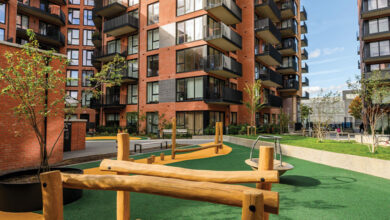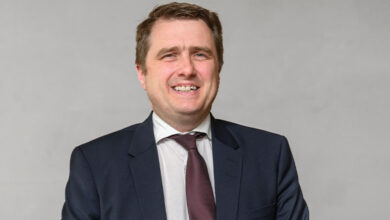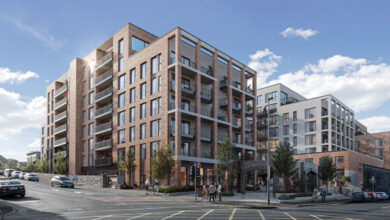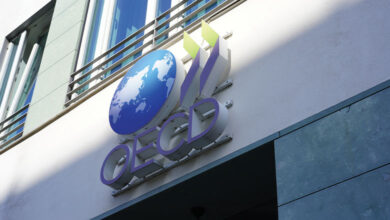Defining the annual housing delivery target
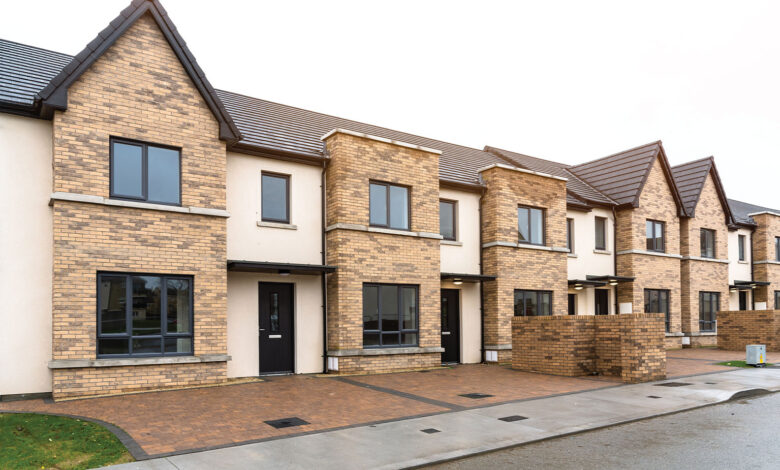
The Government, research bodies, housing experts, and opposition parties have established a consensus on increasing unit delivery to solve the State’s housing crisis. However, the publication of several reports on housing demand, as well as the stances of the different political parties, means that there is ambiguity as to what exactly the housing delivery target should be.
ESRI: Population projections, the flow of new households and structural demands
The ESRI’s report, Population projections, the flow of new households and structural housing demand, published in July 2024, has revised figures set out in 2020 by the ESRI which informed the targets set by the Government under Housing for All.
The report determines that between 35,000 and 53,000 new dwellings will need to be constructed per annum by 2040, considering different models of population projections, the projected structure of households, and future economic growth. The report further specifies that the bulk of this new demand will be in Ireland’s cities, specifically Dublin, with minimal population growth anticipated in rural parts of the State out to 2040. This piece of research carried out by the ESRI has been used by the Government to inform the draft revision of the National Planning Framework.
Government policy
The Government’s housing measures in Budget 2025 are focused on the key theme of increasing housing supply. At the time of writing, the Government’s housing delivery target remains at 33,000 per year, under the auspices of the Government’s flagship housing policy, Housing for All.
However, an update, due to be published in Autumn 2024, to Housing for All is likely to include an updated target. Indeed, the recently-published draft revision of the National Planning Framework – currently out for public consultation – has projected an average housing need of 50,000 per year to 2040.
Report of The Housing Commission
The Report of the Housing Commission, released in May 2024, asserts that there is an existing housing deficit of 235,000 units which should be resolved by 2034. This would require building numbers to increase by an average of 50 per cent per annum on current numbers. The Commission further recommends that this could be enabled by the establishment of a housing delivery oversight body.
The Commission does not specify what the number of homes built per annum should be but does state that it needs to be “scaled up”, and recommends enhancing the powers and resources of local authorities, in particular, it calls for local authorities to develop ‘land activation units’ “to facilitate and promote strategic development of public and private housing”. Meanwhile, also proposed is a “whole of government” programme of infrastructure delivery aligned with strategic ‘housing delivery zones’.
Alongside the existing housing deficit and future demand, the Commission also notes that, while the Government did deliver 32,000 new homes in 2023, that this is set against a backdrop where housing supply previously peaked at close to 90,000 in 2007.
Draft first revision of the National Planning Framework
The draft First Revision to the National Planning Framework (NPF) – the planning framework for socioeconomic and cultural development of the State out to 2040 – anticipates the need for ~50,000 additional homes each year.
Published for public consultation on 10 July 2024, the draft review intends to update the NPF to reflect changes in government policy, not least in climate action, regional development, demography, and digitalisation. With the consultation having closed in September, Minister for Housing Local Government and Heritage Darragh O’Brien TD has told eolas Magazine that he wanted to see the revised NPF “implemented in September [2024]”. At the time of writing, however, this has not taken place.
Defining the annual housing delivery target (continued)
Opposition parties’ housing plans
Of the opposition parties, Sinn Féin, the Social Democrats, and the Labour Party have published housing plans with specific delivery targets, while Independent Ireland, People Before Profit, and Aontú have not established housing delivery targets in their housing policy documents.
In Sinn Féin’s alternative housing plan, A Home of Your Own: Sinn Féin’s Plan to make Housing Affordable, released in September 2024, the party has proposed delivery of 300,000 houses by 2030, with 46,500 built in 2025, 53,000 in 2026, 59,750 in 2027, 66,750 in 2028, and 74,000 being built in 2029. The party further states that these figures “must be revised regularly and amended as new information becomes available, including levels of private sector output, demographic change, and economic conditions”.
The Sinn Féin plan further recommends the establishment of a housing needs demand assessment group which would include representation from the Central Statistics Office, the ESRI, and The Housing Agency to monitor progress and assess demand on a continual basis.
The Social Democrats, in their affordable housing strategy, Homes Within Reach, published in October 2024, have said that they would deliver 50,000 affordable purchase homes and 25,000 cost rental homes over five years, and that this would be “in addition to private sector delivery and a ramping up of the construction of social housing”.
The Labour Party has called for the delivery of one million new homes over “the next decade”. This would involve construction of 50,000 new houses per annum for 10 years, as well as the deep retrofit and restoration of 50,000 vacant and derelict properties per annum. Census 2022 records that there are around 166,000 vacant houses in the State.
Analysis
The Government’s Housing for All plan set out the target of increasing supply to 33,000 per annum annually until 2030, based on ESRI projections for housing demand in 2020. While the Government has met this target, which actually exceeds the 26,000 initially proposed by the ESRI, subsequent studies have shown that there is an overwhelming consensus on the need to revise the Government’s targets.
The opposition parties have a shared consensus that at least 50,000 homes per annum are needed. Speaking to eolas Magazine in June 2024, Minister for Housing, Local Government and Heritage Darragh O’Brien TD said: “When I took over as Minister, we were in a situation where there were less than 20,000 homes delivered a year. We were in a situation where we had 10 years of very significant undersupply. In the first two years of Housing for All, we have exceeded the target substantially and we have built 110,000 new homes at the end of Q1 this year [2024].”
O’Brien added that the Government’s priority is “to accelerate that progress, keep the strong focus on social housing delivery”, and outlined that his target for 2024 was 34,500.
However, with the publication of the next Housing for All progress report due in the autumn of 2024, it is certain that there will be an upward revision of this target set by the Minister.
Exactly what this target will be, however, is unclear, as the opposition, sectoral experts on The Housing Commission, and – under some projection models – the ESRI, have recommended a significant upward move on the Government’s supply targets. While it is safe to assume the Government will revise its targets upwards, anything less than a target of 50,000 per annum may be met with scepticism by the opposition and housing experts.


